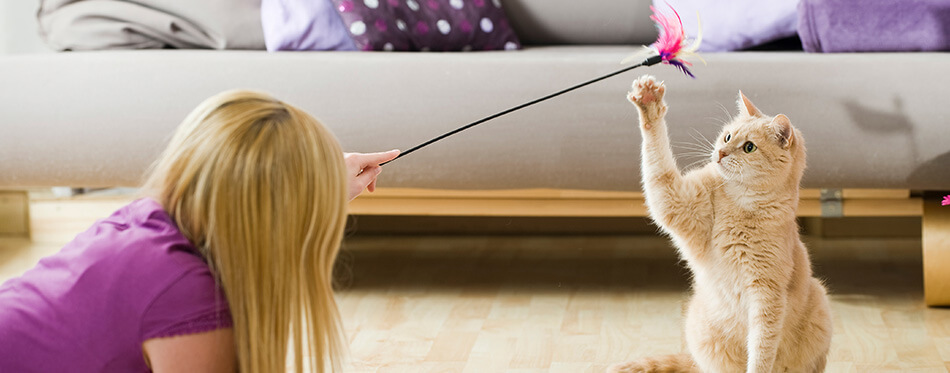Professional pet sitters offer a great level of security and safety for your pet while you’re away, but it can be challenging to find one that you feel has the right chemistry. Pet sitters need to be comfortable around your pet and capable of handling them in any situation – like dog walkers knowing they can handle your dog if something should grab their attention. But it’s knowing how to find a good pet sitter when the options are so many. Well, here are a few tips and tricks we feel could be instrumental in helping you to find the right professional pet sitter for your furry, feathery, or scaley baby.
What Does a Pet Sitter Do?
A pet sitter has the same function as a babysitter – but for pets! Pet sitting typically entails all the tasks for pet care that you would do yourself if you were home. This includes:
- Make sure your pet or pets are appropriately fed
- Exercising them (such as dog walking)
- Playing with them, or interacting with them if they’re not the playful types, in order to help continue their socialization process and familiarise them with their new caregiver.
- Specifically for reptiles and aquariums – turning down the tanks at the correct times to enable your beloved pet(s) to acknowledge daytime hours.
Whichever pet sitting services you decide upon, be sure to check their capabilities with certain animals. Certain pets require an experienced pet sitter with prior knowledge of the species or breed to confidently be able to care for it. Most pet sitters will only have experience with the standard family pets such as dogs, cats, and hamsters. However, exotic pets are more niche and need an experienced hand.

How to Find a Pet Sitter
There are multiple pet sitting options you could try for your scaley, feathery, or furry friends, each of which has its pros and cons.
Ask Family or Friends
If you have a family member or friends that are willing to look in on your pets and make sure they’re okay, then it saves you the hassle of background checks, as well as saving you the cost of finding qualified pet sitters. Though they may ask you for some money to help with care costs, family and friends will often look in on your pets free of charge. You have to be sure that they’re comfortable and confident doing so.
Asking For Recommendations
Many dog owners will know dog sitters to recommend, and the same goes for cat care and other pets, including reptiles, fish, and birds. Though if you’re not able to get a good recommendation from family, friends, or other dog owners, you could always ask your veterinary clinic or local humane society for recommendations instead. Going down the more professional route might also guide you towards someone with pet sitting certifications, giving you that extra bit of reassurance in their capabilities.
Search Online
Sometimes the fastest way to get a good answer is to look online for someone capable of caring for your pet. But be very careful where you look. Our top recommendation would be to check out Pet Sitters International (PSI) as they will only recommend pet sitters with the Certified Professional Pet Sitter (CPPS) qualification. This ensures that they will adhere to a certain standard of care and maintain the organization’s code of conduct and ethics.
Community Connections
If you have a local community that you trust, you may even want to put something out in a community group or neighborhood board with an invitation for people to interview for the job. (Never give the job out without getting to know the person you are considering ahead of time).
Things to Consider With Potential Pet Sitters
As previously explained, you should ensure the person pet sitting for you is fully capable of doing so. So here are a few key things you should look out for when considering a potential pet sitter for your pet.
Discuss Details of Care and Look For Quality
Professional pet sitters, or even just good quality pet sitters, will have the knowledge, connections, and qualities necessary to do their job properly. It would be best if you were looking for the following traits when talking with a potential pet sitter:
- A working relationship with a veterinarian in case of emergencies
- Easy methods of contact via phone or email
- The inclination to keep in contact with the pet owner(s)
- Knowledge of training (where needed)
- Knowledge of dietary requirements
- Knowledge of exercise requirements
- Knowledge of general care, such as cleaning and maintaining enclosures.
- Current vaccinations up to date
- References from other clients
Meet With The Sitter in Person
It would help if you always tried to meet with the sitter before agreeing for them to work for you. Once the pet sitter interacts with your pet, you may find that your pet is not overly fond of them or that they don’t exhibit the kind of confidence needed to care for your pet correctly.
Having them handle your pet directly, interact with them, or even feed them can give you an inclination to the dynamic they will have. This is vital information that could make or break the situation and something you should know before leaving them unattended with your little buddy.
Look Out for Red Flags
A big red flag is a potential sitter showing little to no interest in your pet upon meeting them. Enthusiasm is key, and if they’re lacking, that could indicate what you should expect them to be like with your pet if you choose to hire them. There are also several other red flags you should consider:
- Lack of knowledge of the animal(s)
- No insurance
- No prior reference for a background check
- Negative reviews
- Lack of chemistry with the owner
And finally, if you have any uneasy feelings about the person at all upon meeting them, you are not likely to be comfortable with them in your house unattended with your pets. Again, this is not to say that they shouldn’t be given an interview, but keep this in mind when considering applicants.

Hiring a Pet Sitter
Once you’ve decided on a pet sitter, you’ll need to take a few other things into account before beginning the sitting sessions, such as:
Price
You should familiarise yourself with pricing ahead of time to know roughly how much to pay a dog sitter before meeting with one. The average rates tend to sit around $20-40 per day, though this depends on the area you live in and whether or not you have an exotic pet. Exotic pets can cost a little more owing to the specialist nature of their care and the need for someone with additional knowledge or qualifications.
Location and Ease of Access
You should check to see whether or not they live near enough to your home to be able to get to your pet quickly in case of emergencies. Additionally, if the pet sitter also has a job around their sitting duties, you should familiarise yourself with their working hours and work out whether or not those hours will work when it comes to the required care for your pet.
Needing a Pet Sitter in an Emergency
You never know what life might throw your way, and you could find yourself in need of a pet sitter with little to no notice. Of course, many pet owners will have family or friends who can step in if needed. However, if you find yourself in a situation where you need someone to take over the care of your pet as soon as possible, here are some options to consider, which are worth thinking about and preparing for ahead of time, just in case the need should arise:
Does Your Sitter Offer Emergency Services?
When interviewing pet sitters, you should check with them whether or not they offer emergency services on the off chance they’re needed. Alternatively, try asking them to suggest anyone you could contact to set up a baseline for emergency care.
Last-Minute Boarding Facilities
You may find that your local shelter has some last-minute space for dogs or cats to be taken in if you’ve got no other options. Keep a note of the shelters near to you just in case you need one. There are also small pet hotels that offer care for various pets, including rabbits and reptiles.
Hopefully, we have eased your mind somewhat before embarking on the hunt for a pet sitter. We know it can be a daunting task to find someone who is comfortable sharing your home and pets. But if you exercise a good amount of caution, do your research, and trust your gut, you’ll be just fine!

